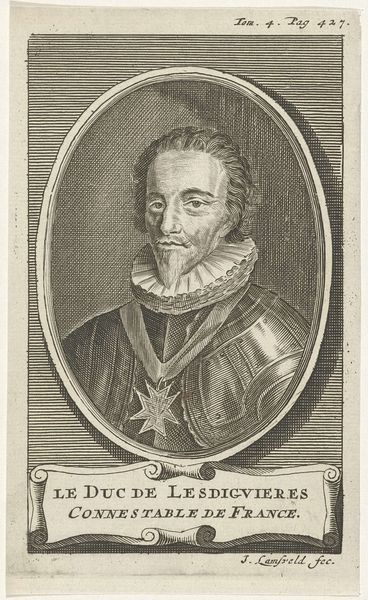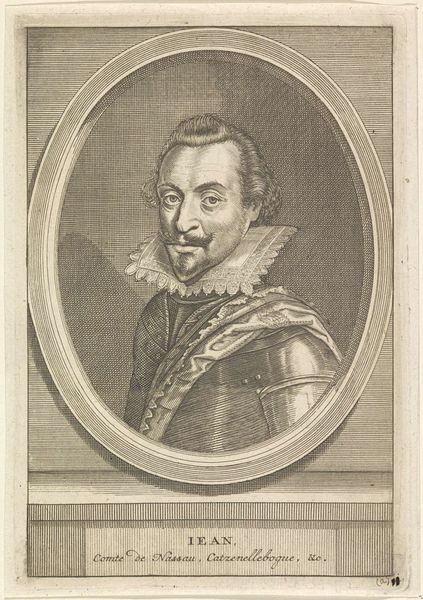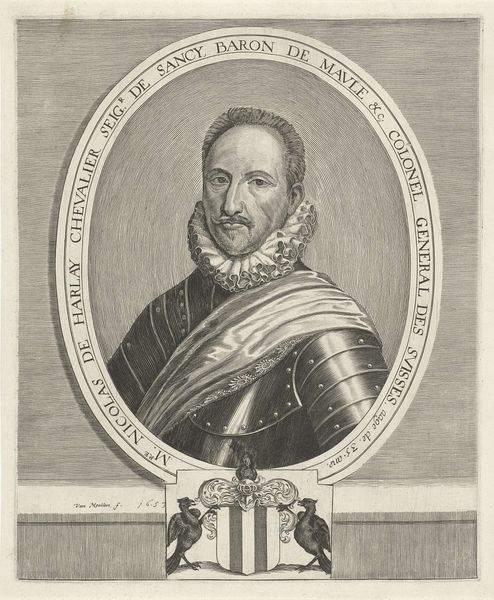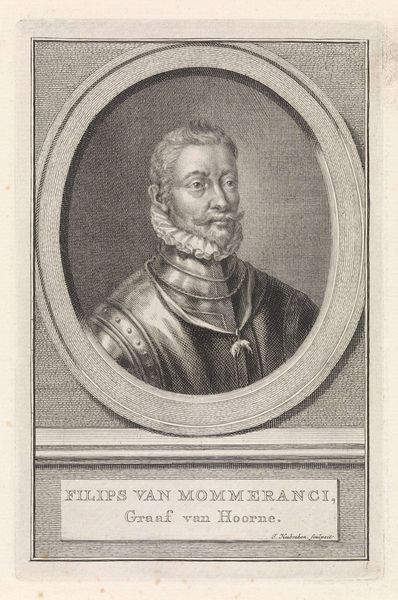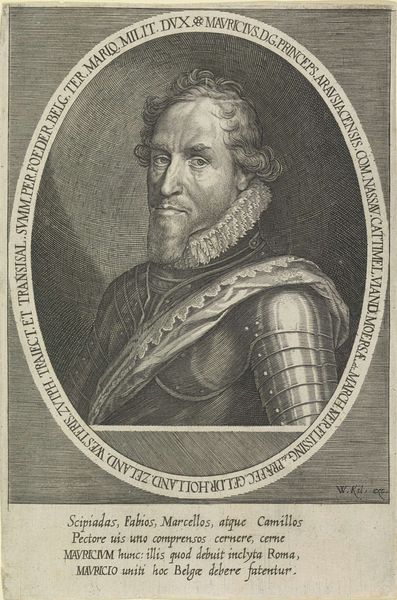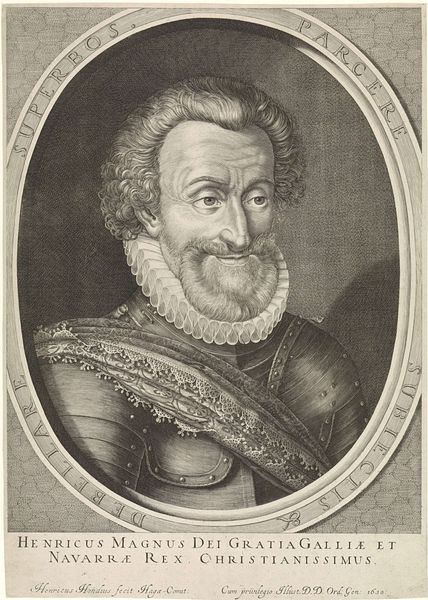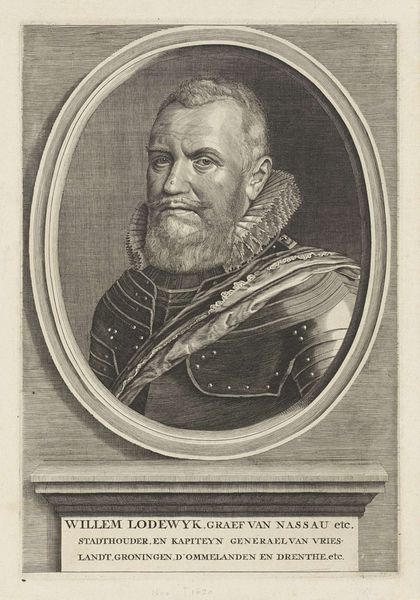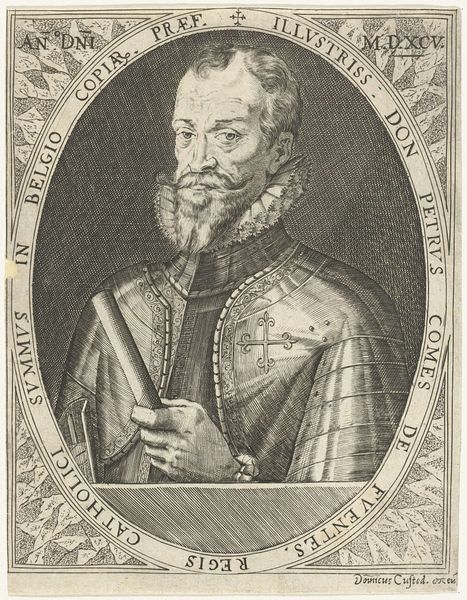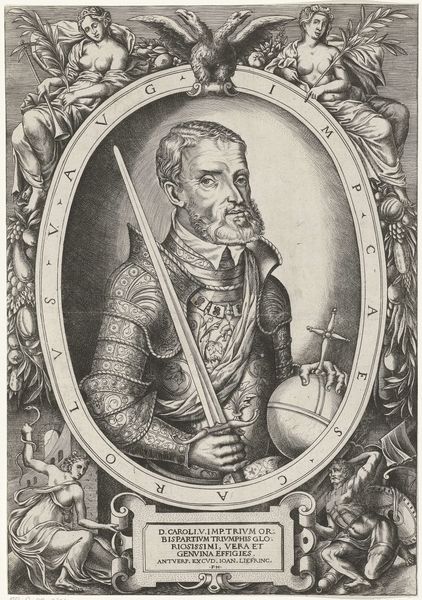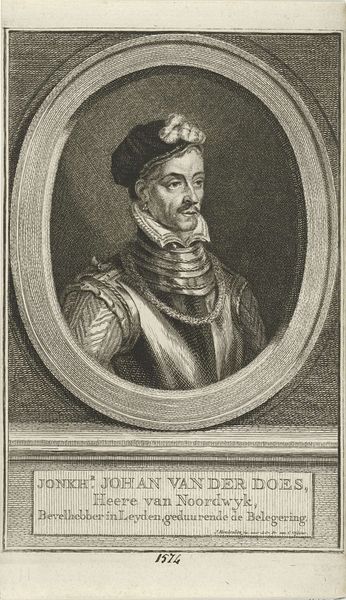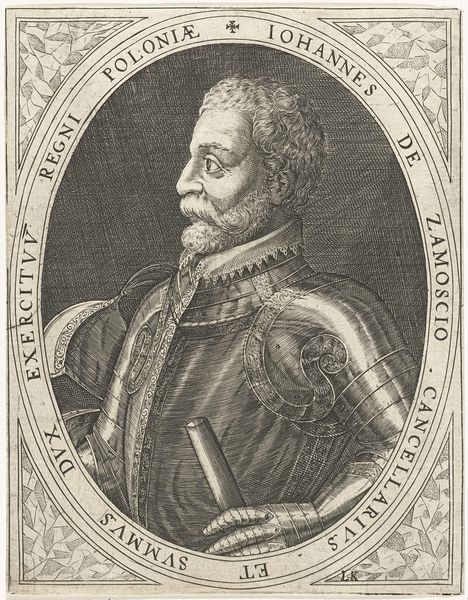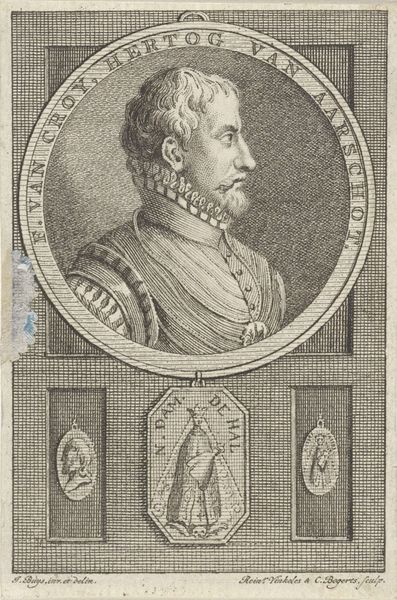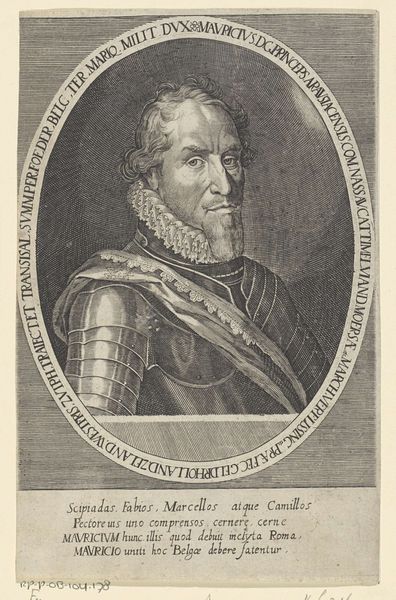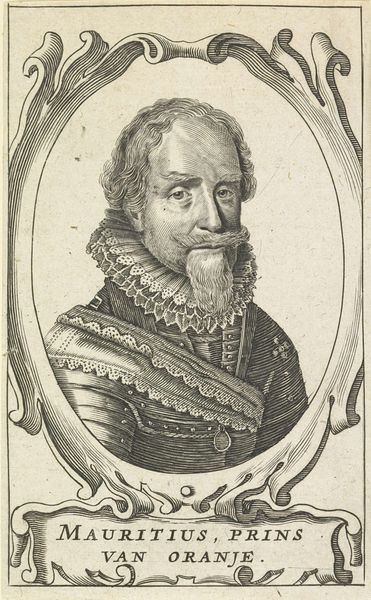
engraving
#
baroque
#
dutch-golden-age
#
history-painting
#
engraving
Dimensions: height 186 mm, width 121 mm
Copyright: Rijks Museum: Open Domain
This is Jacob Houbraken’s portrait of Louis de Boisot, made with engraving techniques. Engraving, unlike drawing, is an indirect process. It depends on transferring an image to a metal plate, usually copper, and then using a tool called a burin to manually cut lines into the surface. These lines hold ink, allowing the image to be printed multiple times. The engraver's skill lies in controlling the depth and spacing of these lines to create the illusion of tone and texture. Houbraken’s skill gives us the Admiral’s likeness. The etched lines delineate the contours of his face, the elaborate details of his armor, and the texture of his lace collar. In its time, this artwork would have required a painstaking amount of labor to complete. The engraver wasn’t simply reproducing an image; instead, they were interpreting it through the specific language of the engraving medium. Paying attention to materials and processes allows us to appreciate the labor and skill embedded in artworks like this, challenging our traditional notions of art, craft, and social history.
Comments
No comments
Be the first to comment and join the conversation on the ultimate creative platform.
